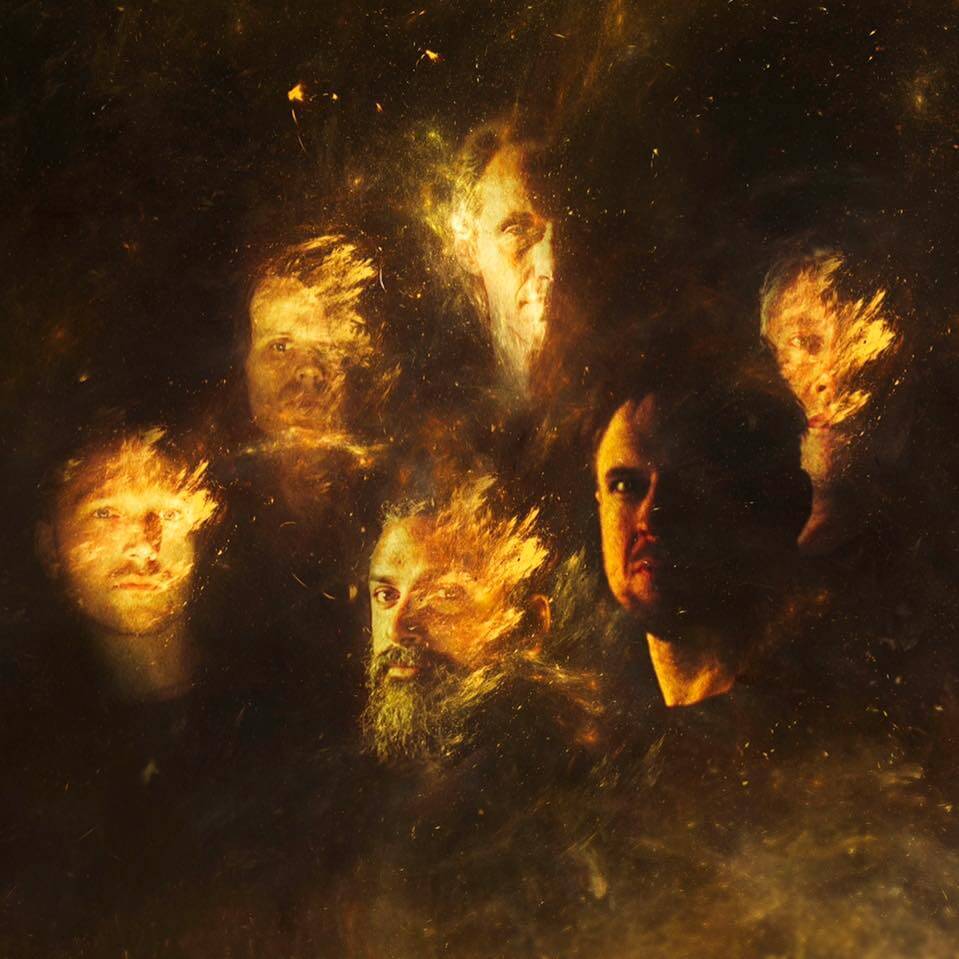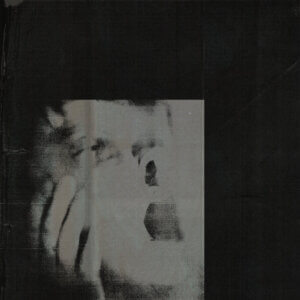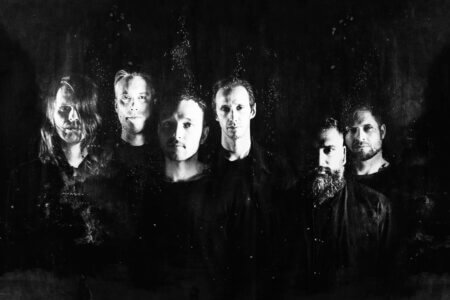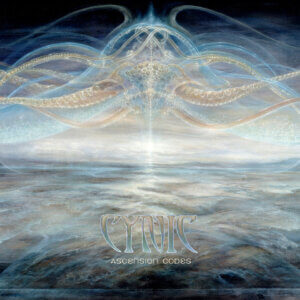Cult of Luna Forge Their Own Path

Sweden’s Cult of Luna recently announced the release of a new EP entitled The Raging River on the band’s newly created record label Red Creek Recordings. I recently had a chance to speak to frontman Johannes Persson about the connection of the new EP to their last album, the formation of the label, collaborating with Mark Lanegan, and how Norwegian black metal influenced their sound.
NT: You’ve said that The Raging River is in some ways a continuation of your last album A Dawn to Fear. What do you feel ties the two together?
JP: The connection is very obvious because most of those songs were written when we went into the studio (to record 2019s A Dawn to Fear) in Norway. We had tons of music that we recorded and sometimes when you record stuff you feel like, or we feel as a collective that some songs might be good but they’re not really there yet. We have limited studio time so it doesn’t make sense to waste time on songs that are not going to end up on the album. So pretty early we put some songs on the side that we felt we had to work on some more but they were part of that writing session. Then we continued to write when we had time so you have some pieces of music that were written before A Dawn to Fear and some written after. I write all the time whether or not they end up as Cult of Luna songs or not that’s something we as a collective have to decide.
NT: So is there material you compose that yourself or the band feel doesn’t have the Cult of Luna sound?
JP: I need to stress that I’m not the only writer but we do write songs that never get recorded and get thrown out. We try as best as we can to experiment and push boundaries but even though we might try out new stuff there is something, and it’s so abstract I can’t really put it into words because it’s more of a gut feeling, that it has to have the Cult of Luna atmosphere tied to it. Sometimes it can be a more metal song or maybe a more mellow song. It’s hard to describe, it’s such an abstract thing when you talk about art it’s all about matters of opinion and gut feelings.
NT: When I listen to your albums I feel there’s a consistency there. I do feel that you guys have your own sound. When I hear one of your songs I know it’s Cult of Luna.
JP: I agree and as a Swede, it’s hard to give yourself credit for anything but I do think we have that. The reason is all the members take responsibility for their own parts and Cult of Luna is the sum of all its parts. Even though I write most of the songs I know two things. One, when we start working on the song as a band it’s not gonna sound the way I intended and two, it’s always gonna sound better. Everybody knows their stuff, they know how to expand the different parts. That’s what I think is the beauty of having a band as a collective. I would not be able to write the parts the guitar parts that Fredrik (Kihlberg) does. Not that I can’t play them, it’s just that he has a specific way of writing that is not my way of writing. When Fredrik writes a song and I come up with an idea I have my own take on it. We are very different and pretty much all the people in the band come from completely different musical backgrounds which means we have a wide variety of musical baggage or influences. We’ve been pretty open to trying new stuff. Things that might not be kosher in conservative metal points of view and the reason why we haven’t cared is that we’ve never been in the metal scene at all. We came from a completely different scene and we separated from the punk/hardcore scene ages ago which put us in some kind of void which meant that all our options were open. I understand that if you play certain kinds of music certain kinds of rules apply. I have no problem with that at all it’s just not how we have worked. If you’re gonna play power metal or thrash metal there are certain things you can and cannot do.
NT: So when you’ve had lineup changes it’s probably a strength if you find a musician that’s coming from a different place musically because maybe they can bring something new to the table that other people in the band wouldn’t have thought of?
JP: Yeah of course, and we’ve been lucky enough, if you change a band member things can really turn bad. We’ve been lucky because obviously, it hasn’t. If you look at for example when Anders (Teglund) did the keyboards, he came up with ideas that Kristian (Karlsson) absolutely would never come up with and vice versa. Nothing is better than the other it’s just different and they’re both super talented musicians. They work melodies differently, they work sounds differently, they just have different qualities and it has a huge impact on what we do and how we arrange and produce the songs.
NT: You said you feel like Cult of Luna doesn’t belong to any particular heavy music scene in Sweden?
JP: No we haven’t. We have never. When we started off and I started doing interviews I got a lot of questions like “what do you think about the Gothenburg metal scene?” and I know of them (but) we didn’t come from those scenes, we never been part of the metal scene in Sweden. We are from a punk and hardcore background but we definitely don’t belong in that scene. I do at heart still. That’s where I belong when it comes to shows I go to and stuff like that, but musically no.
NT: From my perspective, Sweden has one of the greatest metal scenes in the world.
JP: We do.
NT: There have been some incredibly important bands such as Bathory, Entombed, and Dissection. Were any of those bands any influence to you coming up as a musician yourself?
JP: No, I wouldn’t say they influenced me that much but Erik (Olofsson, guitar [1998–2014]) listened to a whole lot of Entombed. I did too, I listen to a lot of music but they don’t influence me the way I do this stuff. I mean, I think that Slaughter of the Soul (At The Gates) is probably one of the best albums of all time but none of that music has influenced us. If we’re talking about Scandinavia, the Norwegian black metal scene definitely influenced us. I think that scene has probably had the biggest impact on our writing. If it wasn’t for Mayhem and Darkthrone we wouldn’t have started using open chords for example. Which we still do but we don’t sound anything like Norwegian black metal.
NT: I’m surprised to hear you say that, when you say open chords I hear you right away but I never put two and two together when I’ve listened to your music.
JP: The first song we ever recorded for a record was called “Beyond Fate” (Cult of Luna/Switchblade 7”, 2000) which was later re-recorded for the first album. Listen to that, when the first guitar (comes in) it’s just a bunch of open minor chords and we wrote that in maybe ’99 or 2000. That kind of experimenting with open chords, not just doing power chords which we’ve never done, came from that scene and those bands.
NT: Those those kind of chords are definitely a defining feature of Norwegian black metal, for sure. Especially a band like Mayhem. I know, they credit the band Thorns for that, but they kind of took it to the masses, if you will. I would say Sweden, apart from Norway also has a very distinctive black metal scene. Bands like Marduk, Dissection, and obviously Bathory are incredibly important too.
JP: Yeah, and just because I wasn’t aware, or just because I wasn’t a part of that scene doesn’t mean I’m not aware of all the important bands and older people in it. Especially here in Umeå, I mostly went to hardcore punk shows, but there were also shows where you could see a black metal band playing before a punk band played. There was a wide variety of different kinds of bands that played shows here. I saw Dissection in ’96.
NT: That’s one of my favourite bands.
JP: I have a hard time separating art from the artist so I’m not a big fan at all. With that kind of track record, I don’t think we should give them any credit at all. But that’s a longer discussion in itself. I saw probably the best documentary series of the Norwegian black metal scene the other day. It’s called Hell. Like, directly translated from Swedish (Helvete – Historien om Norsk Black Metal) and that was amazing. Because one thing that I always think that gets focused on when you talk about it, of course, it’s church burnings and murders. In this documentary, they go through the whole scene. They talk about the murders but that’s just small, small parts. They talk more about, you mentioned Thorns for example, in a long interview with him, he talks about more of the musical history, how the sound evolved. They visit Grieghallen Studio where they recorded (Mayhem’s) De Mysteriis Dom Sathanas. Talk about how they produced it, how they sound, and they tie that together with the cultural aspect of it. So it’s by far the best one I’ve seen.
NT: I was able to find it on the internet with English subtitles and I have to agree with you that it was probably the best documentary I’ve seen because all the sensationalism about that whole time period is just so overblown and boring at this point. I would much rather hear about the musicianship and the songwriting. That’s far more interesting to me.
JP: Yeah, and other people might find it boring but when they talk to Snorre Ruch (Thorns) about how he discovered how to do arpeggios, basically, with minor chords and that classical music had a big impact on how they wrote music. I mean, that for me, that’s really interesting. It’s the same thing with my writing. When I started writing music when I was 15 or 16, I ripped off bands, you know? That’s how you do it, of course, kind of bouncing. You play with different musicians that teach you how to do chords, that stuff that you haven’t thought of, and everything becomes a melting pot. All of a sudden, after a few years goes by, you find your own way of doing stuff and it’s hard to distinguish any clear things that you get inspired by because they all melt together. You have found your own way of writing and that’s why I still do it the same way. I always get tons of questions “What do you get inspired by?” I don’t know. I just know how to write and of course, I’m not stupid. I understand that I get subconsciously inspired by stuff. I listen to a lot of music and sometimes an idea gets stuck, but if I channel that, through the filter of how I arrive, it becomes something that I do. If we take that even further when I channel that through all the great musicians that I am fortunate enough to play with it’s going to sound completely different. That’s how you find your own voice, even though from start, you just tried to rip off your favourite hardcore band.
NT: What made it the right time to start your own label? Was it something you had planned to do for a while?
JP: We’re still on Metal Blade but they were nice enough to let us do this. We’ve had the ambition to have our own platform for many, many years. I think we have released two seven inches, ourselves. One 15 years ago, another one a couple of years later, and we released a book but it hasn’t become more than just a one-time thing. At first, nobody had the know how to do a label. Now time has passed, you learn a lot. Also, we have our manager, and he is much to blame for this. So we talked with him about doing this for a while and I would say that if it wasn’t for this pandemic thing, we wouldn’t have had the extra time that we needed to do this. If it wasn’t for this pandemic, we wouldn’t have recorded the EP. So it actually started that way. I thought that since we have this extra time, maybe we should go back and finish these old songs and while we’re at it, this is a perfect way to use it as a springboard to get the company rolling. Now we have all the facts on the table and I know the effort, time and most importantly the money you need to have your own label. I’m really happy that we have Cult of Luna in order to have a release that we know we’re not going to lose money on. So it’s a great start and we haven’t even finished with the first release yet. A lot of things that you need to sort out, boring administrative stuff, getting the right permissions from the authorities, those things you only need to do once, and all the other stuff we are learning so the next release will be not as nerve-racking as this one. It’s been a mess with all the stuff that you need to do. I had no idea that you had to pay mechanicals and prove it in order for the pressing plant to even press your records. I had no idea and I’ve been working with this for 20 years. So yeah, I’m learning.
NT: Do you plan to sign other artists to the label or is it mainly meant to be a vehicle for Cult of Luna to have more control over your career going forward?
JP: In the long run? Yes. I haven’t really identified as a person that can help other people, but people have reached out to me for years, sending me music and demos and all that, and why do they do that? I can’t do anything. Now we have a platform where I can. However, I think the first year at least, we’re going to do a couple of quote, unquote, safe releases that we know we won’t lose any money on in order to get a buffer so we actually can sign artists that we can afford to lose money on. So definitely the ambition is to do work with bands that we feel don’t get the recognition they deserve.
NT: When you wrote “Inside of a Dream” did you have Mark Lanegan in mind? It’s a beautiful song and obviously, a lot of people are very familiar with Mark Lanegan and will probably be very interested to hear it. Was he familiar with Cult of Luna?
JP: I don’t know to be honest. We have been fans of Mark for years. I think, if I had to put a top 10 all-time, all genres, list of records, I would probably have (Mark Lanegan’s) Bubblegum up there. I’ve listened to that record religiously. In 2005, we worked on this album that later would become Somewhere Along the Highway. We had a song that the working title was the Lanegan song. It was like, this song would be perfect with his voice on it. It was a fantasy. It wasn’t even, you know, close. We wouldn’t even know who to ask. We were young and didn’t have any self-confidence at all. Now 15 years later, we had this song and we talked about it and an idea pops up in my head that maybe this is the time when we go and ask Mark. I sent a text message to our manager. Do you know anyone that worked with Mark? He said yes, I know his manager really well and they start emailing and he says yes. Then finally we got in contact just me and him. He sent me an email, said he really liked the song. I asked him if he wanted to write the lyrics or if he wanted me to write the lyrics and I said he was totally free to do whatever he wants. He answered me really quick. He said that he had recorded the song the same day as he got it and he was not able to do any retakes because he didn’t have access to the studio. He said, “if you don’t like it, I enjoyed the process. I enjoyed the song very much. If you like it cool”, and you probably know as well as I do that he obviously can’t do anything wrong.
Cult of Luna’s The Raging River will be released February 5th on Red Creek Recordings.
Latest Reviews
Tracks
Advertisement
Looking for something new to listen to?
Sign up to our all-new newsletter for top-notch reviews, news, videos and playlists.









